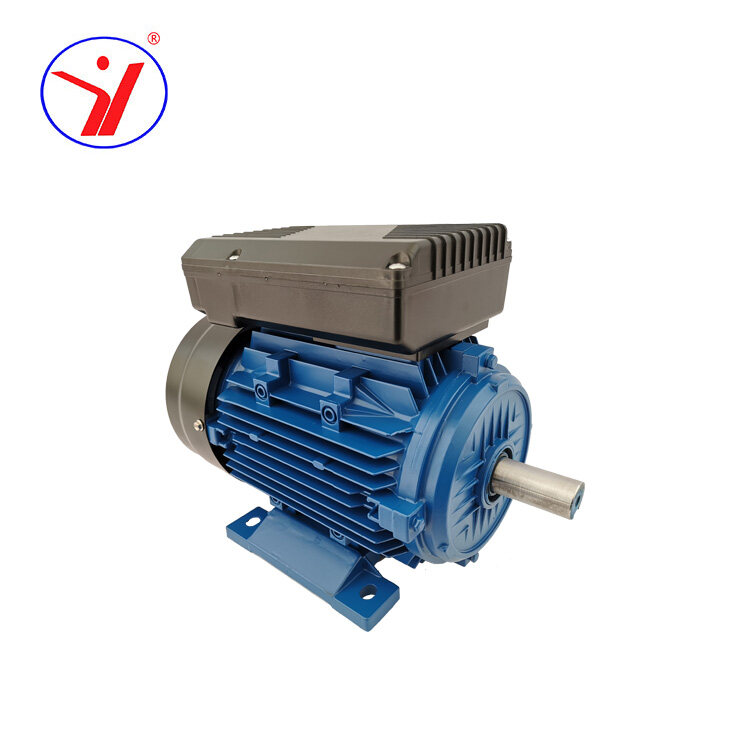Single-Phase Capacitor Start Capacitor Run Motor: An Overview
Introduction
A single-phase capacitor start capacitor run (CSCR) motor is a type of electric motor that is widely used in various applications. It is specifically designed to provide high starting torque and efficient operation in single-phase power systems. In this blog, we will explore the working principle, applications, temperature rise limit, starting torque, efficiency, insulation class, and selection criteria for single-phase CSCR motors.
Working Principle
The single-phase CSCR motor consists of two capacitors: a start capacitor and a run capacitor. During the starting phase, the start capacitor is connected in series with the auxiliary winding. This creates a phase shift between the main and auxiliary windings, generating a rotating magnetic field. This rotating magnetic field initiates the motor’s rotation. Once the motor reaches a certain speed, the centrifugal switch disconnects the start capacitor, and the run capacitor remains connected to improve the motor’s efficiency.
Differences from Other Types of Motors
Compared to other types of motors, such as shaded pole or split-phase motors, single-phase CSCR motors offer several advantages. They provide higher starting torque, making them suitable for applications that require high initial loads. Additionally, they have better efficiency and power factor compared to other single-phase motors. However, they are more complex and expensive due to the presence of two capacitors and a centrifugal switch.
Applications
Single-phase CSCR motors find applications in various industries and appliances. They are commonly used in air compressors, refrigeration systems, pumps, fans, blowers, and other equipment that requires high starting torque. Their ability to handle heavy loads and provide efficient operation makes them suitable for industrial and commercial applications.
Temperature Rise Limit
The temperature rise limit for single-phase CSCR motors is typically specified by the manufacturer. It is important to operate the motor within the recommended temperature range to ensure its longevity and performance. The temperature rise limit is influenced by factors such as ambient temperature, motor design, and insulation class.
Starting Torque
Single-phase CSCR motors are known for their high starting torque. The exact value of the starting torque depends on the motor’s design and specifications. It is important to select a motor with sufficient starting torque to meet the requirements of the application.
Efficiency with Load Variation
The efficiency of single-phase CSCR motors varies with the load. At full load, these motors typically exhibit higher efficiency compared to other single-phase motors. However, as the load decreases, the efficiency may decrease slightly. It is important to consider the motor’s efficiency characteristics when selecting it for a specific application.
Insulation Class
The insulation class of single-phase CSCR motors is an important consideration for their safe and reliable operation. The insulation class determines the maximum allowable temperature rise and the motor’s ability to withstand electrical stresses. Common insulation classes for these motors include Class B, Class F, and Class H.
Selection Criteria
When selecting a single-phase CSCR motor, several factors should be considered. These include the required starting torque, operating conditions (such as ambient temperature and duty cycle), efficiency requirements, and available power supply. It is also important to ensure that the motor’s electrical and mechanical specifications meet the application’s requirements.
Conclusion
Single-phase capacitor start capacitor run (CSCR) motors are widely used in various applications due to their high starting torque and efficient operation. Understanding their working principle, applications, temperature rise limit, starting torque, efficiency, insulation class, and selection criteria is crucial for choosing the right motor for a specific application. By considering these factors, one can ensure optimal performance and longevity of the motor.


